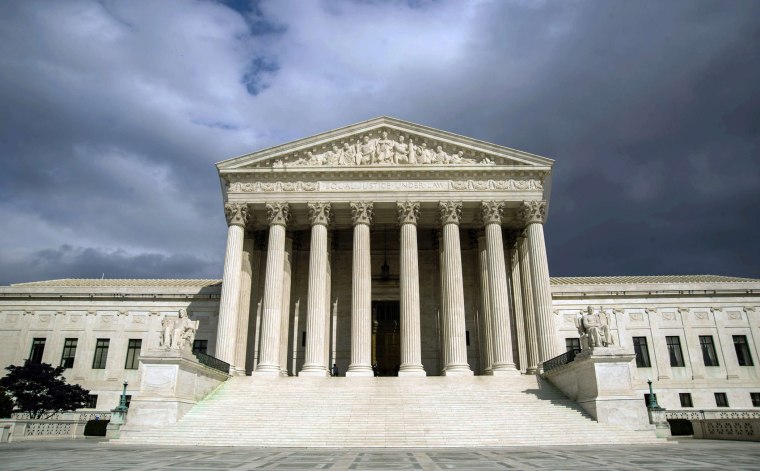If you thought the Affordable Care Act's days before the U.S. Supreme Court were over, think again. We learned this morning that one important provision of the law will have its day before the justices, too.
The Supreme Court, taking up a controversial provision of Obamacare, agreed Tuesday to consider whether a company can refuse to provide contraceptive care to female employees on the grounds that doing so would violate its religious freedom. It's a question the Supreme Court has never answered: Does a for-profit company have the right to object to a law on religious grounds? "This case presents, front and center for the justices to decide, a question that's been open for a long time: Do companies, not just people and churches, have religious freedom?" said Tom Goldstein, a Supreme Court expert and publisher of the SCOTUSblog website.
The high court's willingness to hear the case does not come as a surprise -- two federal appeals courts heard similar cases and reached different conclusions. When that happens, Supreme Court intervention is almost certain.
Regular readers probably know that I've been preoccupied with this case for a long while, largely because it sits at the intersection of so many important political disputes -- religious liberty, conservative opposition to contraception, the ongoing war on women, questions surrounding corporate personhood, and Americans' access to basic preventive medical care.
For those just joining us, let's review what this case is all about. When it comes to the federal law that treats contraception as preventive care, available without copays, the Obama administration already exempts houses of worship. The White House also came up with a compromise for business owners so that they wouldn't have to cover contraception costs directly through their insurance plans.
Hobby Lobby, an arts-and-crafts chain owned by Christian conservative Steve Green, says that's not quite good enough. The business' executives have gone to court with an unusual argument: because Hobby Lobby's owners oppose contraception on religious grounds -- they consider birth control to be tantamount to abortion -- this necessarily means that the corporation itself should also be able to oppose contraception on religious grounds.
After all, the argument goes, corporations are people. If a private, for-profit business has free-speech rights under campaign-finance laws, then business should also have religious liberty. The owners' theology can necessarily be transferred to the business, making their spiritual beliefs the corporation's spiritual beliefs. And in this case, we're told, Hobby Lobby's spiritual conscience opposes contraception so strongly that Hobby Lobby's employees shouldn't have access to birth control under their health plan.
On a certain level, this may seem plainly ridiculous, and to my mind, it is. But let's note that some federal judges have already found this argument compelling enough to rule in Hobby Lobby's favor.
There are legal scholars who can speak to this with more authority than I can, but the notion that businesses have religious beliefs of their own is hard to take seriously. Indeed, as the 3rd Circuit explained over the summer, courts have "long recognized the distinction between the owners of a corporation and the corporation itself." Ruling that "a for-profit corporation can engage in religious exercise" would "eviscerate the fundamental principle that a corporation is a legally distinct entity from its owners."
Religious business owners -- at Hobby Lobby and elsewhere -- immediately argue in response that it's unfair for the law to infringe on their spiritual values. But therein lies the point: the law makes requirements of businesses (who don't have theological beliefs), not people (who do). No one is imposing a burden on the corporation's executives personally, just the corporation.
If Hobby Lobby -- and Conestoga, a cabinet-making company, which filed the same suit and is now a part of this case -- prevail at the Supreme Court, there's no reason to think corporations would have to stop at contraception. If a business owner's personal religious beliefs oppose mental health care, then that, too, could be excluded from employees' coverage. The same goes for HIV tests, vaccines, drug treatment, or literally any other area of health care a corporation's owners deemed morally objectionable.
The justices will hear the case in the spring; expect a ruling in the summer. For more, my MSNBC colleague Iran Carmon published a great piece on the larger controversy.
